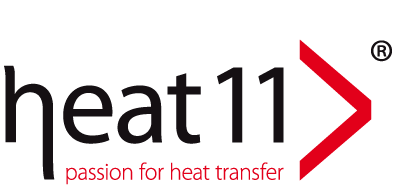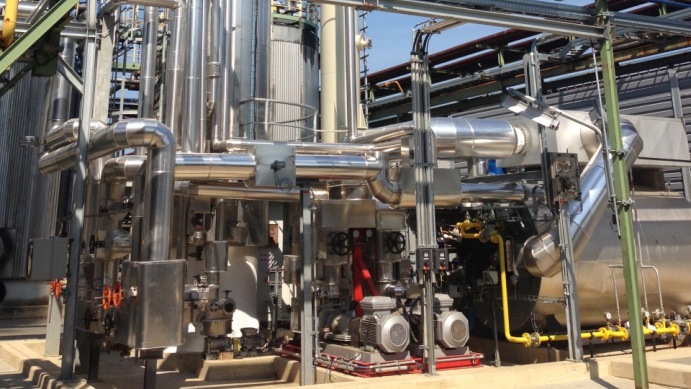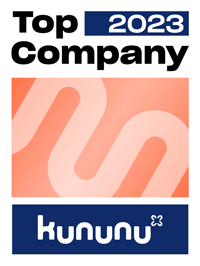In spring of this year, heat 11 commissioned a thermal oil plant for temperature control of a hydrogenation plant for medical products. Plant operator is the company H&R Chemisch Pharmazeutische Spezialitäten GmbH, a specialty chemicals company from Salzbergen (Germany), subsidiary of the stock-listed H&R AG, which operates as manufacturer of chemical-pharmaceutical specialty products based on crude oil and precision plastic parts. The heatnews editors spoke with Erich Weitzel, operations manager of H&R, about the experiences within this capital project.
heatnews: Mr. Weitzel, a thermal oil plant was delivered to you this year and put into operation. What is the purpose this plant will be used for?
Weitzel: The plant is for the thermal supply of two hydrogenation plants for manufacture of high-purity oils and paraffins for the pharmaceutical and cosmetic field and the food industry. It consists of a gas fired heater with a heating capacity of 2.000 kW with natural gas fired burner, air preheater and chimney as well as pumps and combustion air fans. It is a replacement and also expansion investment in the course of which we exchanged our existing electrical heaters and expanded our production capacity.
Which criteria were important for you for the concept of the plant and the choice of the plant vendor?
Especially in the production of medical products, there are particularly high requirements to the process stability and availability of the plant. Furthermore, we paid special attention to the plant efficiency, the exhaust emission and the profitability of the plant. When choosing the right project partner – besides the reasonable price – the expertise of the vendor in particular was decisive for us. This includes above all the ability of the vendor to become quickly skilled in our processes and procedures and to understand our requirements in order to create an optimum solution for us.
Where there specific technical requirements?
It goes without saying that we expect a plant design of state-of-the-art technology. Besides, the efficiency requirements were tremendous: Despite the high inflow temperature of 375 °C, an efficiency of more than 90 % had to be reached. This was finally also achieved by using a combustion air preheating to 210 °C and an O2 control of the combustion process. But we still had additional requirements: As per our factory specifications and a required 24/7 availability, the plant had to be designed with full redundancy and equipped with a flow rate control. Since our company is located closely to a residential area, strict noise emissions (85 decibel) had to be met. An optimized erection of the plant regarding the handling that among others led to a design of expansion and collecting vessel as combination container was an additional requirement.
What do you think makes a good project handling in all?
The plant has been operating failure-free since the successful commissioning. This is not least thanks to the good teamwork between plant operator and manufacturer. However, this can only be achieved when all participants in the project dispose of a high professional competence and communicate very open at eye level. This is specially important when failures occur during the project period that can not be excluded entirely for those projects. An appropriate flexibility and a fair treatment between all participants involved are therefore decisive factors of success for the best of such a project.
What are the requirements for the suppliers in this case?
Our suppliers have to be among the best within its territory and must have relevant knowledge and experiences. We require of course the compliance with the relevant standards and regulations. For project business in plant engineering, however, expertise and experience are simply irreplaceable. After all, we do not expect a solution off the peg but a plant concept designed individually according to our specifications that corresponds to the strictest technical, qualitative and economic standards. This applies to the concept and planning phase as also in regard to the clean execution for the manufacture and installation.
What could still be improved?
Frankly, there was near-to-nothing to improve on the entire settlement of the project. We are satisfied 100 % and would settle the project in exactly the same form.
Mr. Weitzel, thank you very much for the interview!





Comments are closed.